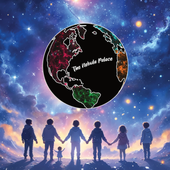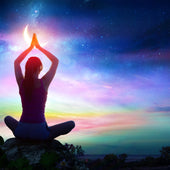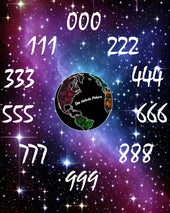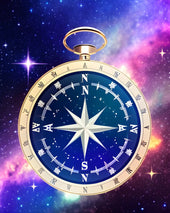
Embracing Diversity: Unveiling the Tapestry of Spirituality and Religion
Share
Introduction:
In the tapestry of human experience, spirituality and religion emerge as vibrant threads, each carrying unique colors and patterns. While they may be distinct, they have the power to coexist harmoniously, guiding individuals towards a better quality of life and deeper connection with the divine. In this heartfelt blog post, we explore the differences between spirituality and religion, highlighting their potential for synergy and emphasizing the importance of respect for those who identify as spiritual, religious, or both. Join us on a passionate and emotional journey as we celebrate the beauty of diversity and the common quest for meaning and transcendence.
Understanding Spirituality and Religion:
Spirituality is an intrinsic aspect of our being, encompassing personal beliefs, practices, and experiences that nourish our soul and deepen our connection to something greater than ourselves. It is a journey of self-discovery, seeking meaning, and fostering a profound sense of interconnectedness.
Religion, on the other hand, is an organized system of beliefs, rituals, and traditions that guide communities in their spiritual journey. It provides structure, moral frameworks, and a collective sense of belonging.
Synergy and Harmony:
While spirituality and religion can be approached differently, they need not exist in opposition. In fact, they can work cohesively to enrich our lives. Religion can provide a framework and support system for spiritual exploration, while spirituality infuses personal depth and individual connection with the divine. Together, they offer a comprehensive path for personal growth and transcendence.
The Power of Unity:
At their core, spirituality and religion share a common goal—to uplift and nurture the human spirit. Both offer solace during difficult times, provide moral guidance, foster community, and ignite the flame of hope. By embracing the unity within diversity, we create an inclusive space where individuals can find their own unique paths to the divine.
Respecting Different Paths:
In honoring the diversity of human experience, it is crucial to respect those who identify as spiritual, religious, or both. Each person's journey is valid and deserves acknowledgement and understanding. Let us cultivate empathy, compassion, and open-mindedness, recognizing that the quest for transcendence can manifest in various forms.
The Healing Power of Respect:
By fostering a culture of respect, we create an environment where individuals can freely express their spirituality or religious beliefs without judgment or prejudice. Respect allows us to celebrate our differences, engage in meaningful dialogue, and learn from one another's perspectives. It is through respect that we build bridges of understanding and unity.
Embracing the Wholeness:
To achieve a better quality of life, it is essential to honor both spirituality and religion, whether we identify as spiritual, religious, or find ourselves navigating the intersection of both realms. By embracing their cohesiveness, we nurture our spiritual growth, cultivate a sense of purpose, and foster deep connections within ourselves, with others, and with the divine.
Conclusion:
The intertwining of spirituality and religion forms a rich tapestry of human experience. While they have distinct qualities, they possess the power to complement and enhance one another. Let us embrace the diversity within spirituality and religion, cultivating respect, empathy, and unity. In doing so, we foster a world where individuals are free to explore their paths, find solace, and achieve a better quality of life—a world that cherishes the beautiful mosaic of human transcendence.Discover Other Posts
-

Sensory-Friendly Clothing Guide: Cosmic Comfort for Every Body
An overview about the sensory needs of disabled folks when it comes to apparel.
-

The Nebula Palace: Uniting Each Other Among The Cosmos
Discover the mission of what The Nebula Palace represents in this unifying article!
-

What Does Spiritual Mean in Simple Words?
We cover on what spiritual means in a simpler sense~
-

Best Shoes for Walking and Standing All Day
Discover the best shoes for walking and standing all day with this highly informative article.
-

Can You Be Spiritual Without Being Religious?
Discover a journey of seeking answers to being spiritual without being religious (yes it is possible).
-

How Do You Grow Deeply Spiritually?
Dive deep into this informative blog post about how to grow deeply spiritually.
-

Astrology and Spirituality: An Integrated Approach
Diving into the integration of astrology and spirituality and how they factor into our personal lives.
-

10 Powerful Spiritual Words and Their Meanings
Dive into this blog to discover 10 powerful spiritual words and their meanings.
-

Spirit Guide Meditation: A Journey to Inner Wisdom
Discover the journey of spirit guide meditation in this immersive blog post.
-

Elevate Your Spiritual Self: The Nebulaic Need of Fashion to "Get in Style"
Looking to get in style with cosmic fashion? This blog will guide you on how to do just that!
-

Nebulae and Their Chemical Connection to Spirituality
Discover the chemical significance of nebulae in spirituality in this immersive blog post.
-

How to Achieve Spiritual Growth and Maturity
Discover the significance of spiritual growth and maturity and why it is so impactful in this blog post.
-

8 Steps to Spiritual Maturity
Discover the essence of spiritual maturity and it's benefits in this immersive blog post.
-

Understanding Spiritual Energy and Harnessing Its Power
Experience how to harness spiritual energy, learn from the misconceptions and enhance your spiritual development.
-

Reflection Nebulae: A Cosmic Reflection of Our Spirituality
Discover what significance that reflection nebulae have on the spiritual world in this blog post.
-

How to Dress for the Cosmos: Spirituality Fashion Trends and Tips Inspired by The Nebula Palace
Discover spiritual fashion trends and tips with spirituality that are inspired by The Nebula Palace.
-

How to Experience a Spiritual Awakening in 5 Simple Steps
Discover some steps on achieving a spiritual awakening in this enticing article.
-

Why Spirituality is Important in Today's Life
Expressing the reasons behind why spirituality is important in today's life.
-

The Heart Nebula: A Cosmic Symbol of Love and Transformation
Learn about the Heart Nebula and it's spiritual significance of love and unity. There's more than what meets the eye.
-

The Orion Nebula: A Cosmic Wonder and a Spiritual Symbol
Discover what the Orion Nebula is and it's spiritual significance from the cosmos.
-

Understanding Spiritual Gifts and Spiritual Awakenings
Understanding what spiritual gifts and spiritual awakenings are and how the connect with each other.
-

How to Practice Mindfulness for Better Health and Happiness
Discover the transformative power of mindfulness—your gateway to reduced stress, enhanced well-being, improved focus, and a more vibrant, balanced life.
-

How to Overcome Spiritual Bypassing: A Practical Guide
Diving into the depths of spiritual bypassing and how it negatively affects one's life.
-

Embracing Diversity: Navigating the Mosaic of Others' Spiritual Choices
Embrace diversity in spiritual choices. Cultivate empathy, respect differences, and learn from the mosaic of beliefs that enrich our shared journey.
-

The Liberation of Inquiry: Unveiling the Profound Benefits of Questioning Spiritual Ideas
Questioning spiritual ideas is a journey of growth, connection, and resilience. Embrace inquiry for a richer, more authentic spiritual tapestry.
-

Embracing the Hidden Self: The Profound Importance of Shadow Work
Unmasking the shadows within - Explore the transformative power of shadow work and illuminate your path to self-acceptance and authenticity.
-

Navigating the Labyrinth of Spiritual Ego: A Path to True Authenticity
Navigating spiritual ego requires humility and self-awareness. Discover how to transcend ego's grasp for authentic growth.
-

Beyond Angel Numbers: Unveiling the Multifaceted Journey of Spirituality
Beyond angel numbers lies a vast world of spirituality - diverse practices, intuition, sacred symbols, and inner transformation.
-

Cosmic Energy in Fashion: Channeling Spiritual Vibes through All-Over Print Clothing
Explore the cosmic connection in fashion with all-over print clothing, channeling spiritual vibes through celestial designs.
-

Nurturing the Soul: Exploring the Intersection of Spirituality and Veterans' Well-Being
Exploring the transformative power of spirituality in veterans' lives, providing meaning, connection, and resilience on their healing journey.
-

Reconnecting with Your Inner Child: Unleashing Joy through Spirituality and Cosmic Energy
Discover how spirituality and cosmic energy can reignite your inner child, fostering joy, creativity, and a renewed sense of wonder in life.
-

Exploring the Intersection of Spirituality and Ethics: Nurturing a Moral Compass
Discover how spirituality nurtures our moral compass, fostering compassion, self-reflection, and ethical decision-making in our lives.
-

The Importance of Spirituality in Today's World: A Path to Positive Transformation
Discover the transformative power of spirituality in today's world—nurturing inner peace, cultivating compassion, and finding meaning.
-

Cosmic Dreamwork: Ignite Your Passion and Unleash Limitless Possibilities
Ignite your passion and unlock limitless possibilities through cosmic dreamwork. Explore the transformative realm of dreams and unleash your true potential.
-

Empowerment vs. Fear: Navigating the Path of Spirituality
Spirituality empowers by cultivating self-awareness, authenticity, and a positive mindset. Toxic spirituality breeds fear, stifles growth, and restricts individuality. Choose a path of love, understanding, and personal agency to create a positive impact in your life and others'.
-

Navigating the Path: Unraveling the Difference Between Spirituality and Toxic Spirituality
Discover the stark difference between spirituality and toxic spirituality. Embrace growth, compassion, and authenticity on your spiritual journey.
-

Rediscovering Spirituality in a Fast-Paced Materialistic World: A Path to Reconnection and Fulfillment
Escape the materialistic trap and embark on a transformative journey of spirituality. Rediscover fulfillment by reconnecting with your inner self.
-

Finding Meaning in Suffering: Exploring the Spiritual Perspective
Discover the profound spiritual insights that offer clarity and inspiration amidst suffering, guiding you to find meaning in life's challenges.
-

The Transformative Power of Spirituality: Healing Trauma Through Inner Connection
Trauma can leave deep scars, affecting our well-being. Explore how spirituality aids in trauma healing through self-reflection, connection, and real-life examples. Discover the transformative power of inner connection in overcoming trauma.
-

Rediscovering Divine Love: Reconnecting with a Lost Spiritual Practice in a Fast-Paced World
-

Nurturing Compassion: How Healthy Spiritual Practices Illuminate World Corruption
Discover how healthy spiritual practices illuminate world corruption, fostering compassion and empowering individuals to be agents of positive change.
-

The Interconnection of Spirituality and Health: Nurturing the Mind-Body Connection
Discover the profound link between spirituality and health. Nurturing this connection enhances well-being, reduces stress, and promotes healing.
-

Reconnecting with Wonder: Nebula Energy Healing and Spirituality Unveiling the Inner Child
Rekindle your inner child through the transformative power of nebula energy healing and spirituality, unlocking joy, creativity, and self-discovery.
-

Illuminating the Path Within: How Spirituality Guides the Journey of Self-Understanding
Embark on a cosmic journey of self-discovery as spirituality intertwines with nebula healing energy, unveiling profound insights and personal growth.
-

Embracing the Cosmos: How Spirituality and Nebula Energy Healing Soothe Stress and Overcome Spiritual Warfare
Discover the transformative power of spirituality and nebula energy healing in relieving stress and overcoming spiritual warfare.
-

The Nebula Connection: Exploring the Spiritual Significance of the Cosmos and the Higher Self
Explore the profound connection between nebulas and the higher self, where celestial beauty ignites spiritual transformation and self-discovery.
-

Nebula Art and Spirituality: A Conduit for Transcendence and Inspiration
Explore the captivating connection between nebula art and spirituality, where cosmic beauty inspires transcendence and a richer quality of life.
-

Embracing the Cosmic Connection: How Spirituality and Nebula Energy Healing Illuminate Mental Well-being
Discover the cosmic dance where spirituality and nebula energy healing converge, illuminating mental well-being and inner transformation.
-

Cosmic Couture: Harnessing the Power of Nebula-Inspired Fashion for Spiritual and Mental Well-being
Ignite your soul with nebula-inspired fashion. Embrace cosmic magic, nurture your well-being, and express your unique journey through ethereal attire.

















































